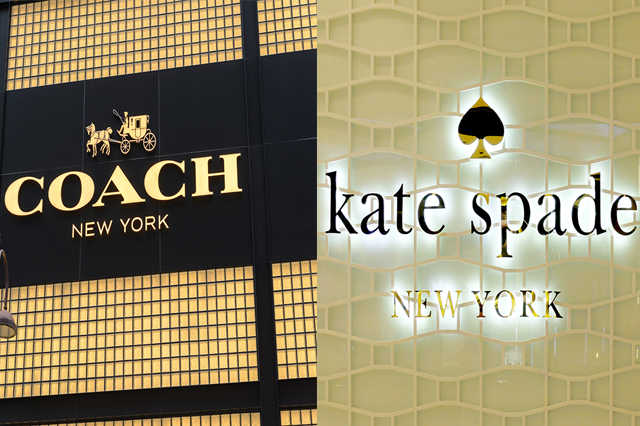
Web Developers
Coach announced on May 8 that it has signed a definitive agreement to acquire Kate Spade for $2.4 billion in an all-cash transaction. The transaction is equal to $18.50 per share, a 27.5% premium to the unaffected closing price of Kate Spade shares on December 27, 2016.
The post-acquisition entity will have combined annual sales of $5.9 billion and 1,300 total stores around the world. Coach expects a run rate of $50 million in operational synergies following the acquisition.
Kate Spade will continue to operate as an independent brand, with corporate support from Coach. There will be no cross-selling between the two brands. Kate Spade’s executive team, including CEO Craig Leavitt, will continue to manage the day-to-day operations of the company.
Additional rationales for this acquisition include:
Strengthening the brand portfolio: The acquisition is part of Coach’s plan to become a multibrand, modern luxury lifestyle company. In 2015, Coach acquired luxury footwear brand Stuart Weitzman for $547 million, and that company continues to deliver double-digit growth. Coach management is confident that the addition of Kate Spade is another opportunity to diversify its brand portfolio and drive growth. There is little overlap between Coach and Kate Spade stores: only 35% of the two brands’ stores overlap in North America.
Reaching millennials customers: Coach management believes that Kate Spade’s strong appeal among millennials will help the company drive future growth. Kate Spade’s distinct design has attracted a growing share of millennials, and 60% of the brand’s customers belong to this age group. No more than 10% of Coach’s and Kate Spade’s customers overlap. Over the past few years, Kate Spade has also expanded to other lifestyle categories beyond its core handbag business.
Operational synergies: Coach expects to realize a run rate of $50 million in synergies in the next three years from operational savings, improved scale and inventory management, and an optimized supply-chain network for Kate Spade.
Improving the Kate Spade brand: Coach plans to improve Kate Spade’s brand equity by scaling back the brand’s wholesale and online flash sales channels, which have been deemed overly promotional. In addition, Kate Spade will benefit from Coach’s scaled leather goods supply chain and from opportunities for operational cost savings.
International expansion opportunity: As both Coach and Kate Spade are in the process of expanding to Asia and Europe, the companies have significant combined know-how in terms of international market expansion, particularly in the areas of consumer insights, customer databases, and analytics capabilities. Coach CEO Victor Luis said that there is an opportunity to acquire some joint-venture partners or distribution channels in these regions.
Coach management says that the company will not be looking at other major acquisition opportunities in the near future. However, the company may explore smaller acquisition opportunities, comparable to Stuart Weitzman.